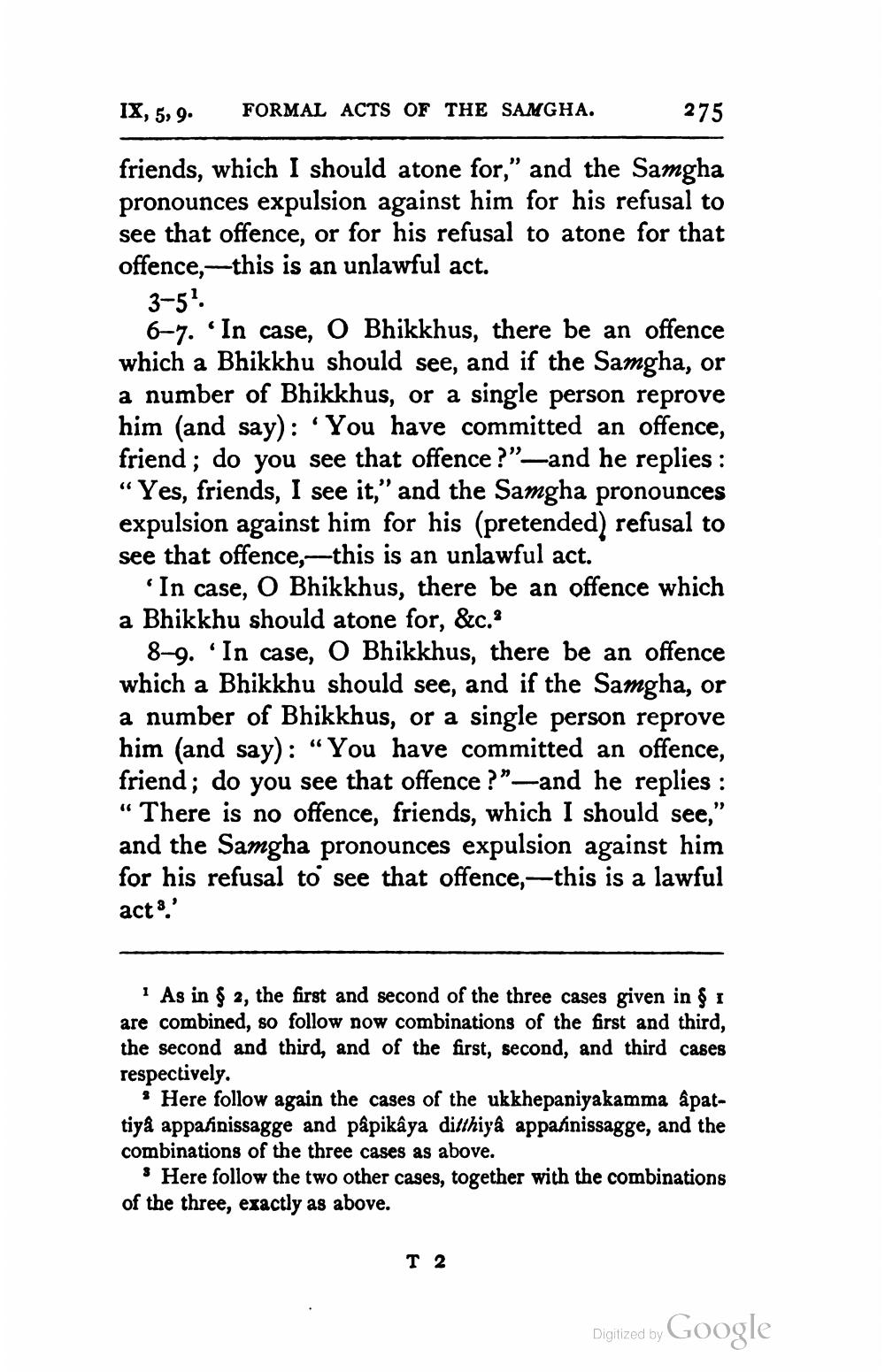________________
IX, 5, 9.
FORMAL ACTS OF THE SAMGHA.
275
friends, which I should atone for," and the Samgha pronounces expulsion against him for his refusal to see that offence, or for his refusal to atone for that offence,--this is an unlawful act.
3-57
6–7. 'In case, O Bhikkhus, there be an offence which a Bhikkhu should see, and if the Samgha, or a number of Bhikkhus, or a single person reprove him (and say): “You have committed an offence, friend; do you see that offence?”and he replies : “Yes, friends, I see it," and the Samgha pronounces expulsion against him for his (pretended) refusal to see that offence,—this is an unlawful act.
In case, O Bhikkhus, there be an offence which a Bhikkhu should atone for, &c. ?
8-9. 'In case, O Bhikkhus, there be an offence which a Bhikkhu should see, and if the Samgha, or a number of Bhikkhus, or a single person reprove him (and say): “You have committed an offence, friend; do you see that offence ?”—and he replies : “There is no offence, friends, which I should see," and the Samgha pronounces expulsion against him for his refusal to see that offence,—this is a lawful
act 8'
As in $ 2, the first and second of the three cases given in & I are combined, so follow now combinations of the first and third, the second and third, and of the first, second, and third cases respectively.
• Here follow again the cases of the ukkhepaniyakamma apattiyå appafinissagge and pâpikâya ditthiyâ appahinissagge, and the combinations of the three cases as above.
* Here follow the two other cases, together with the combinations of the three, exactly as above.
T2
Digitized by




